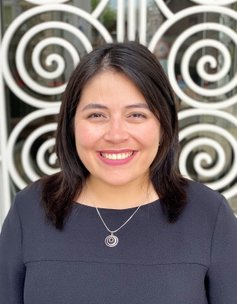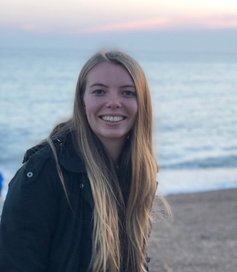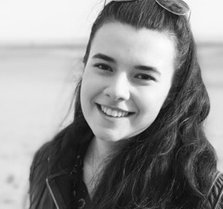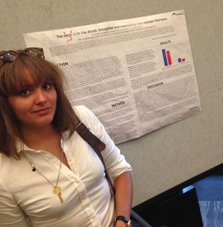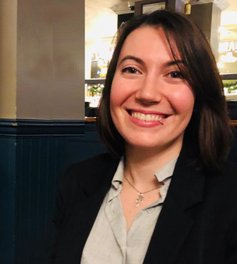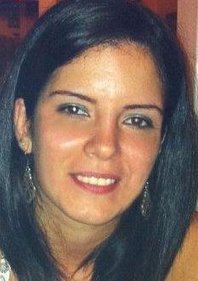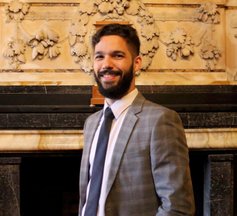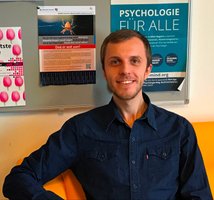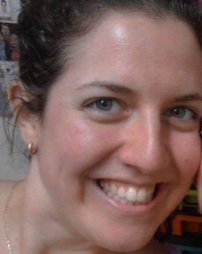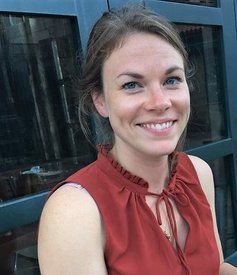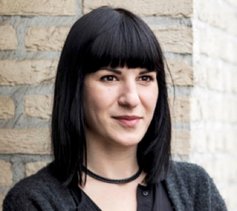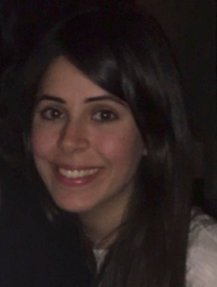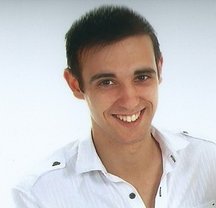ABOUT THE HAC LAB
Solving crimes, mitigating security threats, and protecting the public often relies on interviewers obtaining detailed information or intelligence about what happened - or what is about to happen. Effective interviews with witnesses, victims, suspects and sources that elicit accurate and detailed information are crucial and the onus is on the interviewer to maximize both the quality and quantity of information obtained. Critical to that skill is an understanding of memory – and an appreciation of the reasons why even entirely cooperative interviewees do not spontaneously report all the information they know.
In our lab, we examine information elicitation from a memory and social interaction perspective in order to develop, in collaboration with practitioners, techniques and tools to maximise information gain.
The HAC lab, established in 2009, comprises current and former researchers and PhD students studying topics pertinent to effective and efficient information gain, including investigative interviewing, working with reluctant and hostile witness, deception detection, eyewitness identification, and cross-cultural investigations.
Head of Lab - Professor Lorraine Hope
The HAC Lab is led by Professor Lorraine Hope, a Professor of Applied Cognitive Psychology at the University of Portsmouth and a core member affiliated with the Information Elicitation programme of the UK National Centre for Research and Evidence on Security Threats (CREST) (https://crestresearch.ac.uk). She is also the Strategic Lead for the International Investigative Interviewing Research Group (iIIRG). Over the past 20 years, her research has resulted in the development of innovative tools and techniques, informed by psychological science and practitioner need, for eliciting accurate and detailed information and intelligence across a range of investigative contexts (e.g. Timeline Technique, Self-administered Interview, Structured Interview Protocol). Her work has had global impact and she regularly delivers tools, research, evaluation and training for investigative interviewing and information elicitation in international policing, intelligence and security sectors, including inter- and multi-national agencies, such the Organisation for the Security and Cooperation in Europe (OSCE), the International Criminal Court (ICC) and the High-Value Detainee Interrogation Group (HIG). Current projects include developing ethical evidence-based approaches to the elicitation of complex intelligence information from sources and working with international investigators to inform the conduct of investigative interviews in cross-cultural contexts.
As a leader in interviewing research developments, and experienced in working with a range of stakeholders and end-users in law enforcement and security, Lorraine presents, trains publishes extensively on interviewing and applied memory topics.
Email: Lorraine.Hope@port.ac.uk
HAC Lab Members
Lina Hillner
CREST PhD
Email: up2079360@myport.ac.uk
LinkedIN: www.linkedin.com/in/linahillner
Twitter: @HillnerLina
I will start my PhD within the Centre for Research and Evidence on Security Threats (CREST), based in the Department of Psychology at the University of Portsmouth, in October 2021. Together with my supervisory team, I will be investigating the differential effects of trust and rapport in the elicitation of sensitive information in online contexts.
During my postgraduate studies at Maastricht University, I became interested in evidence-based interviewing and elicitation tactics and how these, in turn, influence the interviewee’s recall or the subject’s information disclosure. After covering the topic of rapport in one of my courses, I decided to dedicate my master’s thesis research project to investigate the effect of different aspects of rapport (i.e., procedural versus relational) on information disclosure of eyewitnesses who are more or less sceptical towards the interviewer’s intention. This project was supervised by Simon Oleszkiewicz (Vrije Universiteit Amsterdam) and Maartje Schreuder (Maastricht University).
Alejandra de la Fuente Vilar
CREST Postdoctoral Research (from January 2021)
Email: a.delafuentevilar@maastrichtuniversity.nl
Twitter: https://twitter.com/aledelafuentev
ORCID: https://orcid.org/0000-0002-2661-5367
I am broadly interested in memory issues in applied legal contexts, and my research mainly focuses on cooperation and information gathering.
From 18 January 2021, I will be working as postdoctoral researcher on a CREST funded project examining information elicitation in online contexts.
In 2020, I earned a PhD degree in Legal Psychology from Maastricht University (the Netherlands) and the University of Gothenburg (Sweden), funded by the European Commission with a House of Legal Psychology fellowship. In 2017-2018, I was a visiting researcher at the University of Portsmouth. Previously, I received a MSc in Forensic Psychology from Maastricht University, and was a visiting international research student at the University of British Columbia. I also hold a license-accrediting BA in Psychology by the University of Buenos Aires, and clinical experience working with mentally ill offenders.
Publications
De La Fuente Vilar, A. (2020). A Broken Tandem: Understanding Lack of Witness Cooperation in the Interview Room. Maastricht University, The House of Legal Psychology. https://doi.org/10.26481/dis.20201014afv
De La Fuente Vilar, A., Horselenberg, R., Strömwall, L. A., Landström, S., Hope, L., & van Koppen, P. J. (2020). Effects of Cooperation on Information Disclosure in Mock-Witness Interviews. Legal and Criminological Psychology, 25(2), 133-149. https://doi.org/10.1111/lcrp.12167
De La Fuente Vilar, A. (in press). Navigating New Waters: Lack of Cooperation in Witness Interviews. In R. Horselenberg, V. van Koppen, & J. de Keijser (Eds.), Bakens in de Rechtspsychologie [Beacons in Legal Psychology]: Liber Amicorum Peter van Koppen (pp. 1-19). Boom uitgevers.
Otgaar, H., Schell-Leugers, J. M., Howe, M. L., De La Fuente Vilar, A., Houben, S., & Merckelbach, H. (in press). Individual Differences in False Confessions: A Review using Experimental, Field and Case Studies. Applied Cognitive Psychology.
Carey Marr
Erasmus Mundus Doctoral Programme
Email: Carey.marr@maastrichtuniversity.nl
I hold a Bachelor’s degree in Psychology from Williams College (United States). After graduating, I spent a year working as a research assistant in the Forensic Psychology Lab at the University of Sydney (Australia) under Helen Paterson and Celine van Golde. While there, I also volunteered with Not Guilty, an exoneration project based in Sydney.
In 2017, I started my doctorate in legal psychology, as part of the Erasmus Mundus Joint Doctoral Program in Legal Psychology (the House of Legal Psychology). I am based at Maastricht University (Netherlands), where I am supervised by Henry Otgaar, Melanie Sauerland, and Conny Quaedflieg. As part of the program, I also spent six months at the University of Portsmouth (UK), where I am supervised by Lorraine Hope. In my doctoral research, I focus on the effects of acute stress on eyewitness memory.
Publications
Marr, C., Otgaar, H., Sauerland, M., Quaedflieg, C.W.E.M., & Hope, L. (in press). The effects of stress on eyewitness memory: A survey of memory experts and laypeople. Memory & Cognition. https://doi.org/10.3758/s13421-020-01115-4. Accessible at https://www.researchgate.net/publication/345145478_The_Effects_of_Stress_on_Eyewitness_Memory_A_Survey_of_Memory_Experts_and_Laypeople
Marr, C., Sauerland, M., Otgaar, H., Quaedflieg, C.W.E.M., & Hope, L. (2018). The effect of acute stress on memory: How it helps and how it hurts. In Mind, 9(38), 1. https://www.in-mind.org/article/the-effect-of-acute-stress-on-memory-how-it-helps-and-how-it-hurts
Recent Presentations
Marr, C., Sauerland, M., Otgaar, H., Quaedflieg, C.W.E.M., & Hope, L. (2019, June). The effect of stress during encoding and retrieval on face recognition. Poster presentation at the Society for Applied Research on Memory and Cognition (SARMAC), Cape Cod, USA.
Marr, C., Sauerland, M., Otgaar, H., Quaedflieg, C.W.E.M., & Hope, L. (2018, June). The effect of stress on face recognition during encoding and retrieval. Poster presentation at the annual conference of the European Association of Psychology and Law (EAPL), Turku, Finland.
Nkansah Anakwah
Erasmus Mundus Doctoral Programme
Email: nkansah.anakwah@maastrichtuniversity.nl
Research Portal: https://cris.maastrichtuniversity.nl/en/persons/nkansah-anakwah
LinkedIn: https://www.linkedin.com/in/nkansah-anakwah-07002a38/
I obtained my Bachelor’s degree in Psychology from the University of Ghana in 2010. In 2011, I commenced a two-year Master of Philosophy degree in Social Psychology at the University of Ghana. My Master’s thesis examined the effect of fear of prosecution and threat of physical harm on risky driving attitudes, a study that was funded by Ghana’s National Road Safety Commission.
During the second year of my Master’s programme, I served as a Graduate Assistant at the Department of Psychology, University of Ghana. Following my master thesis, I continued to work as a Teaching Assistant with the department, where I also worked on other research projects. I later served as an adjunct lecturer at the Methodist University College Ghana, where I taught undergraduate psychology courses.
In 2017 I commenced the Erasmus Mundus Joint Doctorate in Legal Psychology programme, with Maastricht University as my home university and University of Portsmouth as my host university. My Supervisors are Prof. Peter van Koppen (Maastricht University), Dr. Robert Horselenberg (Maastricht University) and Prof. Lorraine Hope (University of Portsmouth). My PhD research focuses on cultural influences on eyewitness memory reports.
Publications
Anakwah, N., Horselenberg, R., Hope, L., Amankwah-Poku, M & Van Koppen, P. J. (2020). The acculturation effect and eyewitness memory reports. Legal and Criminological Psychology, 25, 237 – 256. https://doi.org/10.1111/lcrp.12179
Anakwah, N., Horselenberg, R., Hope, L., Amankwah-Poku, M & Van Koppen, P. J. (2020). Cross-cultural differences in eyewitness memory reports. Applied Cognitive Psychology, 30 (2), 505 – 515. https://doi.org/10.1002/acp.3637
Recent Presentations
Anakwah, N., Horselenberg, R., Hope, L. & Van Koppen, P. J (2020, November). The effect of authority on eyewitness memory reports. Paper presented at the virtual symposium, Psychology from a cross-cultural perspective.
Anakwah, N., Horselenberg, R., Hope, L., Amankwah-Poku, M & Van Koppen, P. J. (2020, November). Culture matters for eyewitness memory reports. Poster paper presented at the virtual Culture and Cognition preconference of the Psychonomic Society.
Anakwah, N. (2020, May). Eyewitness memory reports across cultures. Paper presented at the Zoom-Psychology and Law Symposium
Anakwah, N., Horselenberg, R., Hope, L. & van Koppen, P (2019, July). The acculturation effect and eyewitness testimony among sub-Sahara African migrants. Paper presented at the European Association of Psychology and Law conference, Santiago de Compostela, Spain
Anakwah, N., Horselenberg, R., Hope, L. & van Koppen, P. J (2019, June). Where I come from and what I report: Cultural influences on eyewitness memory. Paper presented at the conference of the Society for Applied Research in Memory and Cognition, Cape Cod, Massachusetts, USA
Anakwah, N., Horselenberg, R., Hope, L. & van Koppen, P (2018, June). Cultural influences on eyewitness testimony. Poster session presented at the European Association of Psychology and Law conference, Turku, Finland
Harry Ramsey
ESRC South Coast Doctoral Training Programme
Email: harry.ramsey@port.ac.uk
I obtained a BSc in Sport and Exercise Science at the University of Portsmouth in 2017. I then undertook my MRes (Sept 2017 – Sept 2018) also at the University of Portsmouth where I undertook a project in the area of perception and action in sport, combining eye tracking and motion capture technologies. Following this, I was successful in applying for a funded PhD from the ESRC that was to be completed at the University of Portsmouth but was first required to complete a MSc in Social Research Methods (Oct 2018 – Sept 2019). I am currently in the second year of my PhD where I am studying skilled non-verbal deception in sport, combining perspectives from sport, developmental psychology, and forensic psychology.
Publications
Ramsey, H., Button, C., Davids, K., Hacques, G., Seifert, L., & Dicks, M. (2020). Considerations for the study of individual differences in gaze control during visual anticipation. Movement and Sports Sciences, doi: 10.1051/sm/2020006
Stefana Juncu
ESRC South Coast Doctoral Training Programme
Email: Stefana.juncu@port.ac.uk
Twitter: @StefanaJuncu
Publications: https://orcid.org/0000-0002-0479-283X
I obtained my BSc (Hons) in Criminology and Psychology from Royal Holloway, University of London and my MSc in Forensic Psychology from University of Portsmouth. During my Masters, I also worked as a research assistant with Dr. Ryan Fitzgerald.
In 2017, I successfully applied for a South Coast Doctoral Training Partnership, under the supervision of Dr Ryan Fitzgerald, Dr Hartmut Blank and Dr James Ost. Professor Lorraine Hope also joined my supervisory team during the second year of study. My PhD project is focusing on improving prospective person memory. Other research interests include eyewitness identification procedures, face recognition and face matching.
Publications
Juncu, S., Blank, H., Fitzgerald, R. J., & Hope, L. (2020). Do image variability and names in missing person appeals improve prospective person memory? Journal of Applied Research in Memory and Cognition, 9(3), 410-418. https://doi.org/10.1016/j.jarmac.2020.07.001
Rubínová, E., Fitzgerald, R. J., Juncu, S., Ribbers, E., Hope, L., & Sauer, J. D. (2020). Live presentation for eyewitness identification is not superior to photo or video presentation. Journal of Applied Research in Memory and Cognition. https://doi.org/10.1016/j.jarmac.2020.08.009
Fitzgerald, R. J., Rubínová, E., & Juncu, S. (in press). Eyewitness identification around the world. In A. M. Smith, M. P. Toglia, & J. M. Lampinen (Eds.), Methods, measures, and theories in eyewitness identification tasks. Taylor and Francis. https://doi.org//17605/OSF.IO/KN6R5
Pamela Hanway
ESRC South Coast Doctoral Training Programme
Email: pamela.hanway@port.ac.uk
Twitter: @pamhanway
Publications: https://orcid.org/0000-0001-5510-4999
UoP Research Portal: https://researchportal.port.ac.uk/portal/en/persons/pamela-hanway(749be41f-f608-4139-bf8e-c4cbad4e543a).html
Formerly a Detective with Merseyside Police (UK), I have many years’ experience in a diverse range of investigative roles. This experience prompted my interest in forensic psychology. I have been awarded a BSc (hons) in Psychology and an MSc in Psychology from the Open University, and an MSc in Forensic Psychology from the University of Portsmouth. For my Forensic Psychology master’s degree my research project examined police officers’ experiences of interviewing children and vulnerable witnesses. In 2017, with my supervisory team of Dr Lucy Akehurst, Dr Zarah Vernham and Professor Lorraine Hope, I was awarded a South Coast Doctoral Training Partnership (SCDTP) PhD studentship at the University of Portsmouth. My PhD research focused on the effects of cognitive load for investigative interviewers. My primary research interests include the cognition of investigative interviewers and the interviewing of children and vulnerable adults.
.
Publications
Hanway, P., Akehurst, L., Vernham, Z., & Hope, L. (2021). The effects of cognitive load during an investigative interviewing task on mock interviewers’ recall of information. Legal and Criminological Psychology, 26(1), 24-41. https://doi.org/10.1111/lcrp.12182
Hanway, P. (2019, March). Cognitive load at interview: The interviewer’s perspective. CREST Security Review, 9. https://crestresearch.ac.uk/comment/hanway-cognitive-load-at-interview/
Hanway, P., & Akehurst, L. (2018). Voices from the front line: police officers’ perceptions of real-world interviewing with vulnerable witnesses. Investigative Interviewing: Research and Practice, 9(1), 14-33.
Charlotte Hudson
Email: charlotte.hudson@port.ac.uk
Twitter: @C_Hudson13
Publications:
In 2014 I graduated from the University of Portsmouth with a BSc (Hons) in Forensic Psychology. For my dissertation I worked with Prof Aldert Vrij and Dr Sharon Leal examining the use of the Symptom Validity Test as an effective lie detection technique and graduated with First Class Honours. Throughout my undergraduate degree I also worked as a research assistant for Prof Aldert Vrij on numerous projects. Following this, I completed my PhD in Psychology at the University of Portsmouth in November 2020, before moving to work in civil service. My doctoral thesis examined the relationship between deception and statement consistency, supervised by Prof. Aldert Vrij, Dr. Lucy Akehurst and Prof. Lorraine Hope. My primary research interests include interpersonal interactions in investigative interviewing, cues to deception and perceptions of deceptive behaviours, individual differences and variance, and information assessment and intelligence.
Publications
Hudson, C. A., Vrij, A., Akehurst, L., & Hope, L. (2020). An examination of the Self‐Administered Interview (SAI) as a verbal veracity assessment tool. Applied Cognitive Psychology, 34(5), 1083-1091. DOI: 10.1002/acp.3696
Hudson, C. A., Vrij, A., Akehurst, L., Hope, L., & Satchell, L. P. (2020). Veracity is in the eye of the beholder: A lens model examination of consistency and deception. Applied Cognitive Psychology, 34(5), 996-1004. DOI: 10.1002/acp.3678
Leal, S., Vrij, A., Deeb, H., Hudson, C., Capuozzo, P., & Fisher, R. P. (2020). Verbal cues to deceit when lying through omitting information. Legal and Criminological Psychology, 25(2), 278-294. DOI: 10.1111/lcrp.12180
Satchell, L. P., Johnson, H. L., Hudson, C. A., & Harper, C. A. (2020). Dispositional disinhibition and alcohol use disorders: personality, risk appraisal and problematic alcohol consumption. Substance Use & Misuse, 55(2), 209-217. DOI: 10.1080/10826084.2019.1662809
Hudson, C. A., Vrij, A., Akehurst, L., & Hope, L. (2019). The devil is in the detail: deception and consistency over repeated interviews. Psychology, Crime & Law, 25(7), 752-770. DOI: 10.1080/1068316X.2019.1574790
Hudson, C. A., Satchell, L. P., & Adams-Quackenbush, N. (2018). It takes two: the round-robin methodology for investigative interviewing research. Frontiers in psychology, 9, 2181. DOI: 10.3389/fpsyg.2018.02181
Gary Dalton
Email: gary.dalton@port.ac.uk
Publications:
I graduated from the University of Stirling in 2009 with a BSc (Hons) in Psychology. As part of my degree I spent one year studying at the University of Sydney on a study abroad program. I am currently working towards my PhD at the University of Portsmouth. My research aims to provide a frontline examination of how witnesses and victims of crime actually first describe a suspect. For this project I work with Hampshire Constabulary and Queensland Police to examine what actually happens at the scene of an incident (using real life footage taken from body worn video cameras). In addition to my studies, I have held a number of research associate positions which have examined eyewitness memory, face matching and lie detection. I am currently a lecturer in the Institute for Criminal Justice Studies at the University of Portsmouth.
Publications
Dalton, G., Milne, B., Hope, L., Vernham, Z., & Nunan, J. H. (Accepted/In press). ‘He was just your typical average guy’: examining how person descriptions
Dr Feni Kontogianni
Email: Feni.kontogianni@winchester.ac.uk
I am a Lecturer in the Department of Psychology at the University of Winchester. My work has focused on the use of information elicitation techniques in forensic and security settings. I completed my PhD at the University of Portsmouth, as part of the Information Elicitation programme of the Centre for Research & Evidence for Security Threats (CREST - www.crestresearch.ac.uk). I previously completed my MSc in Forensic Psychology at the University of Maastricht, the Netherlands, and my BSc in Psychology in Athens, Greece. I am primarily interested in the use of memory-enhancing techniques in interviewing and in the effects that cognitive, social and cultural factors have on reporting information.
Publications
Kontogianni, F., Hope, L., Taylor, P. J., Vrij, A., & Gabbert, F. (2020). “Tell me more about this…”: An examination of the efficacy of follow-up open questions following an initial account. Applied Cognitive Psychology, 34(5), 972-983. https://doi.org/10.1002/acp.3675
Hope, L., Kontogianni, F., Geyer, K., & Thomas, W. (2019). Development of the Reporting Information about Networks and Groups (RING) task: a method for eliciting information from memory about associates, groups, and networks. Journal of Forensic Practice, 21(4), 240-247. https://doi.org/10.1108/JFP-04-2019-0011
Hope, L., Gabbert, F., Kinninger, M., Kontogianni, F., Bracey, A., & Hanger, A. (2019). Who said what and when? A timeline approach to eliciting information and intelligence about conversations, plots, and plans. Law and Human Behavior, 43(3), 263-277. https://doi.org/10.1037/lhb0000329
Kontogianni, F., Hope, L., Taylor, P. J., Vrij, A., & Gabbert, F. (2018). The Benefits of a Self-Generated Cue Mnemonic for Timeline Interviewing. Journal of Applied Research in Memory and Cognition, 7(3), 454-461. https://doi.org/10.1016/j.jarmac.2018.03.006
Dr Haneen Deeb
Postdoctoral Researcher
Email: Haneen.Deeb@port.ac.uk
https://orcid.org/0000-0003-3668-6844
I hold BA (2005) and MA (2012) degrees in Psychology from the American University of Beirut, Lebanon. In 2014, I joined the Erasmus Mundus Joint Doctorate Programme in Legal Psychology. I was supervised by Professors Aldert Vrij and Lorraine Hope and Dr. Samantha Mann at the University of Portsmouth and by Professors Pär Anders Granhag and Leif Strömwall at the University of Gothenburg. I completed my PhD in September 2017, and I am currently working as a Research Associate in Professor Vrij’s research group.
My doctoral thesis project examined various interviewing techniques that may enhance lie detection in forensic contexts. I was specifically interested in eliciting differences in statement consistency between lie tellers and truth tellers. My current work as a Research Associate expands on my thesis project as I examine statement consistency and other veracity cues in memory-based lie detection and in interviews involving sketches and maps.
Publications
Deeb, H., Vrij, A., & Leal, S. (2020). The effects of a Model Statement on information elicitation and deception detection in multiple interviews. Acta Psychologica, 207, Article 103080. https://doi.org/10.1016/j.actpsy.2020.103080
Deeb, H., Vrij, A., Leal, S., & Burkhardt, J. (in press). The effects of sketching while narrating on information elicitation and deception detection in multiple interviews.
Deeb, H., Vrij, A., Leal, S., Verigin, B. L., & Kleinman, S. M. (2020). When and how are lies told? And the role of culture and intentions in intelligence-gathering interviews. Legal and Criminological Psychology, 25(2), 257-277. https://doi.org/10.1111/lcrp.12171
Harvey, A. C., Vrij, A., Leal, S., Deeb, H., Hope, L., & Mann, S. (2020). Amplifying recall after delays via initial interviewing: Inoculating truth-tellers’ memory as a function of encoding quality. Acta Psychologica, 209, Article 103130. https://doi.org/10.1016/j.actpsy.2020.103130
Leal, S., Vrij, A., Deeb, H., Hudson, C., Capuozzo, P., & Fisher, R. (2020). Verbal cues to deceit when lying through omitting information. Legal and Criminological Psychology, 25(2), 278-294. https://doi.org/10.1111/lcrp.12180
Mann, S., Deeb, H., Vrij, A., Hope, L., & Pontigia, L. (2020). Detecting smugglers: Identifying strategies and behaviours in individuals in possession of illicit objects. Applied Cognitive Psychology, 34(2), 372-386. https://doi.org/10.1002/acp.3622
Vrij, A., Deeb, H., Leal, S., Granhag, P., & Fisher, R. P. (in press). Plausibility: A verbal cue to veracity worth examining? European Journal of Psychology Applied to Legal Context.
Vrij, A., Leal, S., Deeb, H., Chan, S., Khader, M., Chai, W. & Chin, J. (2020). Lying about flying: The efficacy of the Information Protocol and Model Statement for detecting deceit. Applied Cognitive Psychology, 34(1), 241-255. https://doi.org/10.1002/acp.3614
Vrij, A., Mann, S., Leal, S., Fisher, R. P., & Deeb, H. (2020). Sketching while narrating as a tool to detect deceit. Applied Cognitive Psychology, 34(3), 628-642. https://doi.org/10.1002/acp.3646
Leal, S., Vrij, A., Deeb, H., & Kamermans, K. (2019). Encouraging interviewees to say more and deception: The Ghostwriter method. Legal and Criminological Psychology, 24(2), 273-287. https://doi.org/10.1111/lcrp.12152
Vrij, A., Leal, S., Fisher, R. P., Mann, S., Deeb, H., Jo, E., Campos, C. C., Hamzeh, S. (2019). The efficacy of using countermeasures in a Model Statement interview. European Journal of Psychology Applied to Legal Context, 12(1), 23-34. https://doi.org/10.5093/ejpalc2020a3
Deeb, H., Granhag, P. A., Vrij, A., Strömwall, L. A., Hope, L., & Mann, S. (2018). Visuospatial counter-interrogation strategies by liars familiar with the alibi setting. Applied Cognitive Psychology, 32(1), 105-116. https://doi.org/10.1002/acp.3383
Deeb, H., Vrij, A., Hope, L., Mann, S., Granhag, P. A., & Strömwall, L. A. (2018). Police officers’ perceptions of statement inconsistency. Criminal Justice and Behavior, 45(5), 644-665. https://doi.org/10.1177/0093854818758808
Deeb, H., Vrij, A., Hope, L., Mann, S., Leal, S., Granhag, P. A., & Strömwall, L. A. (2018). The Devil’s Advocate approach: An interview technique for assessing consistency among deceptive and truth-telling pairs of suspects. Legal and Criminological Psychology, 23(1), 37-52. https://doi.org/10.1111/lcrp.12114 [Recognised by this high impact journal as one of the top 20 downloaded articles in the year 2019]
Leal, S., Vrij, A., Deeb, H., & Jupe, L. (2018). Using the model statement to elicit verbal differences between truth tellers and liars: The benefit of examining core and peripheral details. Journal of Applied Research in Memory and Cognition, 7(4), 610-617. https://doi.org/10.1016/j.jarmac.2018.07.001
Deeb, H., Vrij, A., Hope, L., Mann, S., Granhag, P. A., & Lancaster, G. L. J. (2017). Suspects’ consistency in statements concerning two events when different question formats are used. Journal of Investigative Psychology and Offender Profiling, 14(1), 74-87. https://doi.org/10.1002/jip.1464
Dr Renan Benigno Saraiva
Email: renan.saraiva@port.ac.uk
Publications:
https://www.researchgate.net/profile/Renan_Saraiva
I am a Lecturer in Forensic Psychology at the University of Portsmouth and a member of the International Centre for Research in Forensic Psychology (ICRFP). My research is situated in the areas of investigative psychology and applied cognition in forensic settings. Most of my recent studies have concentrated on estimating and improving eyewitness memory performance. I am also developing a new line of research investigating the evaluation of eyewitness evidence by juries, judges and other triers of fact. I completed my PhD at the University of Portsmouth investigating the role of metamemory in eyewitness accuracy, confidence and over/underconfidence.
I was awarded my PhD in 2019 at the University of Portsmouth, when I also joined the Psychology Department as a Lecturer. I have a BSc in Psychology from the University of Brasilia (Brazil) and a dual-degree PhD in Legal Psychology from the University of Portsmouth and Maastricht University (The Netherlands), awarded by the House of Legal Psychology.
Publications
Saraiva, R. B., van Boeijen, I., Hope, L., Horselenberg, R., Sauerland, M., & van Koppen, P. J. (2020). Eyewitness metamemory predicts identification performance in biased and unbiased line‐ups. Legal and Criminological Psychology, 25(2), 111-132. https://doi.org/10.1111/lcrp.12166
Saraiva, R.B., Sousa, L., Nogueira, R., Coelho, L., &; Alarcao, L. (in press). Effects of arousal and retention interval on eyewitness memory. Psicologia Teoria e Pesquisa. Accepted manuscript.
Saraiva, R. B., Hope, L., Horselenberg, R., Ost, J., Sauer, J. D., & Van Koppen, P. J. (2019). Using metamemory measures and memory tests to estimate eyewitness free recall performance. Memory, 1-13.
Saraiva, R. B., Van Boeijen, I. M., Hope, L., Horselenberg, R., Sauerland, M., & Van Koppen, P. J. (2019). Development and validation of the Eyewitness Metamemory Scale. Applied Cognitive Psychology, 33(5), 964-973.
Saraiva, R. B., & Castilho, G. M. (2018). The psychology of eyewitness testimony: Implications for forensic and investigative contexts. Brasília: Juruá.
Mendoza, C. F., & Saraiva, R. B. (2018). Intelligence assessment: An introduction. In C. S. Hutz, D. R. Bandeira, C. M. Trentini (Eds.), Psychological evaluation of intelligence and personality. São Paulo: Artmed
Saraiva, R. B., Castilho, G. M., Nogueira., R. N. Coelho, L. A., Alarcão, L. C. P., & Lage, J (2018). Eyewitnesses memory for faces in actual criminal cases: An archival analysis of positive facial composites. Estudos de Psicologia (Natal), 22, 247-256. doi: 10.22491/1678-4669.20170025
Other research interests
Mendoza. C. F., Saraiva, R. B., Câmara, G. C., Lopes, W. M., Passos, A. P., Gama, A. M., … Reategui, N. (2018). Socioeconomic environment effect on inferential reasoning of Latin-American students. Revista Salud Mental, 40, 193-190. doi: 10.17711/SM.0185-3325.2017.024
Campelo, G., Zortea, M., Saraiva, R. B., Machado, W., Sbicigo, J. B., Segabinazi, J. D., ... & Salles, J. F. (2016). A short version of the questionnaire of metamemory in Adulthood (MIA) in Portuguese. Psicologia: Reflexão e Crítica, 29(37), 1-8. doi: 10.1186/s41155-016-0043-7
Saraiva, R., & Iglesias, F. (2015). Cooperation under pressure: Time urgency and time perspective in social dilemmas. Time & Society. Advance online publication. doi: 10.1177/0961463X15577271
Saraiva, R. B., Gastal, C. A., Campelo, G., & Iglesias, F. (2015). Time Urgency and Perpetual Activation Scale: Adaptation, validity and a short-version. Psicologia Reflexão e Crítica, 28, 639-648. doi: 10.1590/1678-7153.201528401.
Saraiva, R. B., Iglesias, F., Micas, G. F., Araújo, C. P. N., Lima, C. C., & Costa, M. D. V. (2015). Conformity among eyewitnesses: Effects of false information on criminal reports. Psico-USF, 20(1), 87-96.
Saraiva, R. B., & Iglesias, F. (2013). Judgments of plausibility and emotional reactions to excuses. Interação em Psicologia, 17(2), 163-170.
Technical products
Van Boeijen, I.M., Saraiva, R. B. (2018). legalPsych: A tool for calculating calibration statistics in eyewitness research. GitHub: https://github.com/IngerMathilde/legalPsych
Junior Researcher Programme (Supervisor)
Dr Sergii Yaremenko
Email: sergii.yaremenko@maastrichtuniversity.nl
I hold a Master’s in Law from the National University ‘Odessa Law Academy’. Upon graduating in 2012, I continued my studies at the Odessa Mechnikov University to obtain my second Master’s degree in Clinical Psychology.
In 2016, I enrolled in the Erasmus Mundus Joint Doctorate program in Legal Psychology. I am primarily based at Maastricht University (the Netherlands), where I am supervised by Dr. Melanie Sauerland and Prof. Harald Merckelbach. In 2017, I also joined the department of Psychology at the University of Portsmouth to continue my research here under the supervision of Prof. Lorraine Hope. In my PhD, I focus on the role of time-of-day preferences in eyewitness memory. I successfully defending my PhD in November 2019.
Dr Shiri Portnoy
Email: S.Portnoy@tees.ac.uk
ORCID: https://orcid.org/0000-0002-8455-8292
Twitter: https://twitter.com/ShiriPortnoy
In 2021, I joined the Department of Psychology at Teesside University (UK) as a lecturer in forensic psychology. To date, my research has focused on developing and testing interviewing techniques that may assist innocent suspects to provide complete and accurate information during police interviews. I am also interested in other factors emerging during police interviews that may affect innocent suspects’ ability to provide complete information (e.g., an interviewer’s presumption of guilt), as well as lay people’s beliefs and knowledge (as prospective jurors) about suspect interviewing.
Previously, I obtained a dual PhD in Legal Psychology (2019) from the University of Portsmouth, United Kingdom (supervisors: Prof. Lorraine Hope and Prof. Aldert Vrij), and the University of Gothenburg, Sweden (supervisors: Prof. Karl Ask and Dr. Sara Landström). I had the privilege of conducting my PhD as part of the Erasmus Mundus - The House of Legal Psychology programme.
Publications
Portnoy, S., Hope, L., Vrij, A., Ask, K., & Landström, S. (2020). Beliefs about suspect alibis: A survey of lay people in the United Kingdom, Israel, and Sweden. The International Journal of Evidence & Proof, 24, 59-74. doi: 10.1177/1365712719873008
Portnoy, S., Hope, L., Vrij, A., Granhag, P. A., Ask, K., Eddy, C. & Landström, S. (2019). “I think you did it!”: Examining the effect of presuming guilt on the verbal output of innocent suspects during brief interviews. Journal of Investigative Psychology and Offender Profiling, 16, 236-250. doi: 10.1002/jip.1534
Portnoy, S., Pansky, A. (2016). Metacognitive effects of initial question difficulty on subsequent eyewitness memory performance. Journal of Applied Research in Memory and Cognition, 5, 159-167. doi: 10.1016/j.jarmac.2016.04.007
Presentations
Portnoy, S., Hope, L., Vrij, A., Granhag, P-A., Ask, K., Eddy, C., & Landström, S. (2018, June). Interviewer’s presumption of guilt does not affect innocent suspects’ verbal output during short interactions. Paper presented at the 28th conference of the European Association of Psychology and Law, Turku, Finland.
Portnoy, S., Hope, L., Vrij, A., Ask, K., Granhag, P-A., & Landström, S. (2017, January). Strategic regulation and reporting in the alibis of innocent and guilty suspects. Paper presented at the 12th conference of the Society for Applied Research in Memory and Cognition, Sydney, Australia.
Portnoy, S., Hope, L., Vrij, A., Ask, K., Granhag, P-A., & Landström, S. (2016, June). Strategic regulation and reporting in the alibis of innocent and guilty suspects. Poster presented at the 6th International Conference on Memory, Budapest, Hungary.
Portnoy, S., & Pansky, A. (2014, September). Metacognitive effects of initial question difficulty on subsequent eyewitness memory performance. Poster presented at the 2nd International Conference on Metacognition, Clermont-Ferrand, France.
Dr Nina Tupper
Email: nina.tupper@maastrichtuniversity.nl
Publications:
ResearchGate: https://www.researchgate.net/profile/Nina_Tupper
LinkedIn: https://www.linkedin.com/in/nina-tupper-2992568b/
I obtained my BA in Psychology from Bates College (Maine, USA) during which time I conducted research with Prof. Amy Bradfield Douglass on eyewitness identification decisions and metacognition.
In 2018 I obtained my doctoral degree from the University of Portsmouth and Maastricht University (NL). My PhD was part of an international research consortium, the Erasmus Mundus Joint Doctorate program of Legal Psychology, which gave me the opportunity to collaborate and exchange knowledge with academics and police forces around the world regarding my research on eyewitness identification for multiple perpetrator crimes. My supervisory team included Dr. Melanie Sauerland and Prof. Harald Merckelbach at Maastricht University, Prof. Lorraine Hope and Prof. Aldert Vrij at the University of Portsmouth, and Dr. James Sauer now at University of Tasmania, Australia.
I am currently a lecturer/post-doc at Maastricht University, where I teach courses in Psychology as well as Forensic Psychology. Aside from my continued research in multiple face recognition and identification, I conduct research in contextual memory, the use of eyewitness evidence in court, and applied questions regarding Dutch identification protocols in collaboration with police.
Publications
Sauerland, M., Tupper, N., & Sagana, A. (in press). Een basishandleiding voor ooggetuigen-identificaties [A basic guide to eyewitness identification]. In H. Merckelbach, H. Otgaar, & M. Jelicic (Eds.), Rechtspsychologie. Zutphen.
Sauerland, M., Tupper, N., & Sagana, A. (2021). Gegenüberstellungen und Lichtbildvorlagen durchführen und beurteilen. Ein Leitfaden [Administering and assessing lineups. A basic manual.] Recht und Psychiatrie.
Otgaar, H., Sagana, A., Tupper, N. (2020). A brief reflection on open science. Psychological Research on Urban Society.
Tupper, N., Sauerland, M., Sauer, J., & Hope, L. (2019). Eyewitness identification procedures for multiple perpetrator crimes: A survey of police in Sweden, Belgium, and the Netherlands. Psychology, Crime and Law, 1-35. doi:10.1080/1068316X.2019.1611828
Satchell, L., Davis, J.P., Julle-Daniere, E., Tupper, N., & Marshman, P. (2019). Recognising faces but not traits: Accurate personality judgment from faces is unrelated to superior face memory. Journal of Research in Personality, 79, 49-58. doi:10.1016/j.jrp.2019.02.002
Tupper, N., Sauer, J., Sauerland, M., Fu, I., & Hope, L. (2018). Face value: Testing the utility of contextual face cues for face recognition. Memory, 26, 1436-1449. doi:10.1080/09658211.2018.1489968
Tupper, N., Sauerland, M., Sauer, J., Broers, N., Charman, S., & Hope, L. (2018). Eyewitness identification for multi-perpetrator crimes: Testing for sequential effects in multiple showup decisions. PloS one, 13(12), e0208403.
Tupper, N., Sauerland, M., Hope, L., & Merckelbach, H.M.J. (2015). Seeing and believing: Common courtroom myths in eyewitness memory. In Mind, 28. (see: http://www.in-mind.org/article/seeing-and-believing-common-courtroom-myths-in-eyewitness-memory)
Dr Irena Boskovic
Email: Irena.boskovic@maastrichtuniversity.nl [From February 2020: boskovic@essb.eur.nl ]
Twitter: https://twitter.com/Irena_Boskovic
Irena Boskovic was a member of the House of Legal Psychology program, through which she obtained her double doctorate degree from University of Portsmouth and Maastricht University (the Netherlands). After her PhD, Irena stayed at Maastricht University as a Lecturer.
Currently, Dr Boskovic is an assistant professor of forensic psychology at Erasmus University Rotterdam. She is interested in investigating different approaches to the detection of fabricated symptoms (i.e., malingering).
Publications:
Boskovic, I., Merckelbach, H., Merten, T., Hope, L., & Jelicic, M. (2019). The Self-Report Symptom Inventory as a screen for over-reporting: An explorative study with instructed simulants. European Journal of Psychological Assessment. Doi:10.1027/1015-5759/a000547
Boskovic, I., Dibbets, P., Hope, L., & Jelicic, M. (2019). Verify the scene, report the symptoms: Applying Verifiability Approach and the SRSI to PTSD claims. Legal and Criminological Psychology. Doi:10.1111/lcrp.12149
Boskovic, I., Hope, L., Ost, J., Orthey, R., & Merckelbach, H. (2019). Detecting feigned high impact experiences: A symptom over-report questionnaire outperforms the emotional Stroop task. Journal of Behavior Therapy and Experimental Psychiatry. Doi:10.1016/j.jbtep.2019.101483
Boskovic, I., & Merckelbach, H. (2018). Fake Posttraumatic Stress Disorder (PTSD) costs real money. In Mind Magazine, 4/36. http://www.in-mind.org/article/fake-posttraumatic-stress-disorder-ptsd-costs-real-money
Boskovic, I., Tejada Gallardo, C., Vrij, A., Hope, L., & Merckelbach, H. (2018). Verifiability on the run: An Experimental Study on the Verifiability Approach to Malingered Symptoms. Psychiatry, Psychology, and Law, 1-12. doi: org/10.1080/13218719.2018.1483272
Boskovic, I., Biermans, A., Merten, T., Jelicic, M., Hope, L., & Merckelbach, H. (2018). The modified Stroop task is susceptible to feigning: Stroop performance and symptom over-endorsement in feigned test anxiety. Frontiers in Psychology, 9. https://doi.org/10.3389/fpsyg.2018.01195
Boskovic, I., Bogaard, G., Merckelbach, H., Vrij, A., & Hope, L. (2017). The Verifiability Approach to detection of malingered physical symptoms. Psychology, Crime & Law, 23, 717-729. doi:10.1080/1068316X.2017.130258
Boskovic, I., van der Heide, D., Hope, L., Merckelbach, H., & Jelicic, M. (2017). Plausibility judgments of atypical symptoms across cultures: An explorative study among Western and non-Western experts. Psychological Injury and Law, 10, 274-281.
Jelicic, M., Merckelbach, H, & Boskovic, I. (2017). Seven myths about feigning. In H. Otgaar & M.L. Howe (Eds.). Finding the truth in the courtroom: Handling deception, lies, and memories. Oxford University Press.
Merckelbach, H., Boskovic, I., Pesy, D., Dalsklev, M, & Lynn, S. (2017). Symptoms overreporting and dissociative experiences: A qualitative review. Consciousness and Cognition, 49, 132-144.
Merckelbach, H., Dalsklev, M., van Helvoort, D., Boskovic, I., & Otgaar, H. (2018). Symptom self-reports are susceptible to misinformation. Psychology of Consciousness: Theory, Research, and Practice, 5, 384-393. Doi: org/10.1037/cns0000159
Merckelbach, H., Prins, C., Boskovic, I., Niesten, I. & à Campo, J. (2018). Alexithymia as a potential source of symptom over-reporting: An exploratory study in forensic patients and non-forensic participants. Scandinavian Journal of Psychology, 59, 192-197. Doi 10.1111/sjop.12427
Rassin, E., Boskovic, I., & Merckelbach, H. (2018). PTSD and diminished criminal responsibility as “new evidence” in criminal revision procedures: Two case reports. Journal of Forensic Science, 63, 1911-1913. Doi: org/10.1111/1556-4029.13789,
van der Heide, D., Boskovic, I., van Harten, P., & Merckelbach, H. (2019). Psychosis as a confounder of Symptom Credibility testing in a Transcultural Sample. Journal of Forensic Psychiatry and Psychology. https://doi.org/10.1080/14789949.2019.1663899
van der Heide, D., Boskovic, I., & Merckelbach, H. (2017). Standard symptom inventories for asylum seekers in a psychiatric hospital: Limited utility due to poor symptom validity. Psychological Injury and Law, 10, 358-367.
Dr Aleksandras Izotovas
Email: a.izotovas@mruni.eu
I obtained my BSc (Hons) in 2008 and MSc in 2010, both in psychology from Vilnius University, Lithuania. I also hold second MSc degree from Maastricht University, 2012. During that period, I conducted research on malingering of dissociative amnesia, which was supervised by Prof. Harald Merckelbach and Dr. Maarten Peters.
In 2012-2015, I gained practical experience working as a psychologist within the Lithuanian police system. My main duties involved psychological screening and recruitment, training and consulting police officers. In 2014, I initiated extensive evidence-based training programme for Lithuanian criminal police officers on interviewing witnesses and suspects.
In 2015-2019, I did my PhD as part of the Erasmus-Mundus Doctorate program ‘The House of Legal Psychology’ at the University of Portsmouth (UK) in collaboration with University of Gothenburg (Sweden). My research focused on the effects of mnemonic techniques to detect deception in repeated interviews contexts. The project was supervised by Prof. Aldert Vrij and Prof. Lorraine Hope at the University of Portsmouth, and, Prof. Pär-Anders Granhag and Prof. Leif Strömwall at the University of Gothenburg.
I am currently employed as a lecturer at the Institute of Psychology of Mykolas Romeris University (Vilnius), where I teach Forensic Psychology. Since September 2020, I also working there as a postdoctoral fellow. My research project focuses on the rapport building in suspect interviewing. Additionally, I periodically advise practitioners from different Lithuanian law enforcement institutions on legal psychology questions.
Publications
Izotovas, A., Vrij, A., & Strömwall, L. A. (2020). Mnemonic techniques and lie detection: Accuracy of truth and deception judgments in repeated accounts. Psichologija, 62, 44-55. DOI: https://doi.org/10.15388/Psichol.2020.20
Izotovas, A., Vrij, A., Strömwall, L. A., & Mann, S. (2020). Facilitating memory-based lie detection in immediate and delayed interviewing: The role of sketch mnemonic. Psichologija, 61, 68-89. doi: 10.15388/Psichol.2020.16.
Izotovas, A., Vrij, A., Hope, L., Granhag, P. A., Strömwall, L.A., & Mann, S. (2020). Deception detection in repeated interviews: The effects of immediate type of questioning on the delayed accounts. Journal of Investigative Psycholy and Offender Profiling, 17, 224– 237. https://doi.org/10.1002/jip.1561
Izotovas, A., Vrij, A., Hope, L., Mann, S., Granhag, P.A., & Strömwall, L.A. (2018). Facilitating memory‐based lie detection in immediate and delayed interviewing: The role of mnemonics. Applied Cognitive Psychology, 32, 561–574. DOI: 10.1002/acp.3435
Presentations
Izotovas, A., Vrij, A., Hope, L., Mann, S., & Strömwall, L.A. (2018, July). Mnemonic techniques and lie detection: Accuracy of truth and deception judgments in repeated accounts. Oral presentation at the 28th Annual Conference and Masterclass of the International Investigative Interviewing Research Group (iiiRG), Porto, Portugal.
Izotovas, A., Vrij, A., Hope, L., Mann, S., Granhag, P.A., & Strömwall, L.A. (2018, June). Does the way of immediate interviewing affects deception detection in delayed accounts? Oral presentation at the 28th Annual EAPL Conference, Turku, Finland.
Izotovas, A., Vrij, A., Hope, L., Granhag, P.A., & Strömwall, L.A., & Mann, S. (2018, May). Teisingų ir melagingų parodymų skirtumai pakartotinėse apklausose: mnemoninių technikų panaudojimas nedelsiant po įvykio ir jų įtaka vėlesniems parodymams. [The effects of mnemonic techniques on the immediate and delayed statements of truth tellers and liars]. Oral presentation at the 60th Annual Lithuanian Congress of Psychology, Klaipėda, Lithuania.
Izotovas, A., Vrij, A., Hope, L., Mann, S., Granhag, P.A., & Strömwall, L.A. (2017, September). Facilitating memory based lie detection in immediate and delayed statements: The effects of sketch mnemonic. Oral presentation at the 13th Meeting of the Nordic Network for Research Conference on Psychology and Law, Katowice, Poland.
Izotovas, A., Vrij, A., Hope, L., Mann, S., Granhag, P.A., & Strömwall, L.A. (2017, May). Memory based lie detection: The effects of different memory enhancing techniques on immediate and delayed repeated statements. Oral presentation at the 27th Annual EAPL Conference, Mechelen, Belgium.
Dr Joanne Rechdan
Email: joanne.rechdan@dmu.ac.uk
Twitter: @RechdanJ
Researchgate: https://www.researchgate.net/profile/Joanne_Rechdan
ORCID iD: https://orcid.org/0000-0001-5903-377X
LinkedIn: https://www.linkedin.com/in/joanne-rechdan-382478158/
I am a Lecturer in Psychology at De Montfort University, Leicester. My research examines contextual factors that affect the recall and reporting of episodic memories for forensically relevant events. For my doctoral thesis (2017), I investigated the effect of co-witness discussion on the accuracy and precision of individual memory reports. More recently, my work has focussed on cross-cultural investigative interviewing.
Publications
Rechdan, J., Sauerland, M., Hope, L., & Ost, J. (2016). Was that how it happened?: Shaping our memory for personal experiences in conversation with others. The Inquisitive Mind, 7 (31). Retrieved from: http://www.in-mind.org/article/was-that-how-it-happened-shaping-our-memory-for-personal-experiences-in-conversation-with
Rechdan, J., Sauer, J.D., Hope, L., Sauerland, M., Ost, J., & Merckelbach, H. (2017). Computer mediated social comparative feedback does not affect metacognitive regulation of memory reports. Front. Psychol. 8:1433. doi: 10.3389/fpsyg.2017.01433
Rechdan, J., Hope, L., Sauer, J.D., Sauerland, M., Ost, J., & Merckelbach, H. (2018). The effects of co-witness discussion and misinformation on confidence and precision in eyewitness memory reports. Memory, 26, 904-912. doi: 10.1080/09658211.2018.1448872
Wang, Y., Hu, Z., Peng, K., Rechdan, J., Wu, L., Xin, Y., Lin, J., Duan, Z., Zhu, X., Feng, Y., Chen, S., Jinajun, O., & Chen, R. (2020). Mapping out a spectrum of the Chinese public’s discrimination toward the LGBT community: Results from a national survey. BMC Public Health, 20, 669-679. doi: 10.1186/s12889-020-08834-y
Dr Andrew Clark
Email: andrew.clark@beds.ac.uk
I obtained both my Bachelors (2010) and Masters (2012) Degrees from the University of Hull in the UK. During these studies I worked with Professor Giuliana Mazzoni on a number of research projects which included research on false memories and nonbelieved memories. As a research assistant with Professor Mazzoni (2012-2013) I worked on research which focused on Hyperthymesia. I also worked in with Professor Amina Memon at Royal Holloway, University of London. Together with Dr Alan Scoboria (University of Windsor, Canada) we worked on a number of research projects examining nonbelieved memories.
I completed my PhD on the Erasmus Mundus Joint Doctoral programme in Legal Psychology. My PhD research examined the consequence of withdrawing belief about the occurrence of past events. I am interested in the application of psychology to forensic issues. I am currently a lecturer in the School of Psychology at the University of Bedfordshire.
Publications
Mazzoni, G., Clark, A., De Bartolo, A., Guerrini, C., Nahouli, Z., Duzzi, D., ... & Venneri, A. (in press). Brain activation in highly superior autobiographical memory: the role of the praecuneus in the autobiographical memory retrieval network. Cortex.
Scoboria, A., Memon, A., Gawrylowicz, J., Clark, A. (2015). Nonbelieved memories across the adult lifespan. Psychology of Consciousness: Theory, Research, and Practice.
Otgaar, H., Howe, M. L., Clark, A., Wang, J., & Merckelbach, H. (2015). What if you went to the police and accused your uncle of abuse? Misunderstandings concerning the benefits of memory distortion: A commentary on Fernández (2015). Consciousness and Cognition.
Mazzoni, G., Clark, A., & Nash, R. A. (2014). Disowned recollections: Denying true experiences undermines belief in occurrence but not judgments of remembering. Acta Psychologica, 145, 139-146.
Clark, A., Nash, R. A., Fincham, G., & Mazzoni, g. (2012). Creating non-believed memories for recent autobiographical events. Plos one 7(3).

